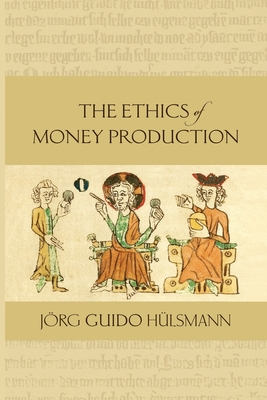This pioneering work, in hardback, by Jörg Guido Hülsmann, professor of economics at the University of Angers in France and the author of Mises: The Last Knight of Liberalism, is the first full study of a critically important issue today: the ethics of money production.There is a reason that this book has been translated to Chinese, German, Spanish, Czech, and there are many more on the way. This book hits the intellectual sweet spot, speaking to the issues that are driving economic events right now. We MUST deal with the money problem in a principled way, else we never get back on the course of sustainable prosperity.By "money production," the author is speaking not in the colloquial sense of the phrase "making money," but rather the actual production of money as a commodity in the whole economic life. The choice of the money we use in exchange is not something that needs to be established and fixed by government.In fact, his thesis is that a government monopoly on money production and management has no ethical or economic grounding at all. Legal tender laws, bailout guarantees, tax-backed deposit insurance, and the entire apparatus that sustains national monetary systems, has been wholly unjustified. Money, he argues, should be a privately produced good like any other, such as clothing or food.In arguing this way, he is disputing centuries of assumptions about money for which an argument is rarely offered. People just assume that government or central banks operating under government control should manage money. Hulsmann explores monetary thought from the ancient world through the Middle Ages to modern times to show that the monopolists are wrong. There is a strong case in both economic and ethical terms for the idea that money production should be wholly private.He takes on the "stabilization" advocates to show that government management doesn't lead to stability but to inflation and instability. He goes further to argue against even the theoretical case for stabilization, to say that money's value should be governed by the market, and that the costs associated with private production are actually an advantage. He chronicles the decline of money once nationalized, from legally sanctioned counterfeiting to the creation of paper money all the way to hyperinflation.In his normative analysis, the author depends heavily on the monetary writings of 14th-century Bishop Nicole Oresme, whose monetary writings have been overlooked even by historians of economic t









